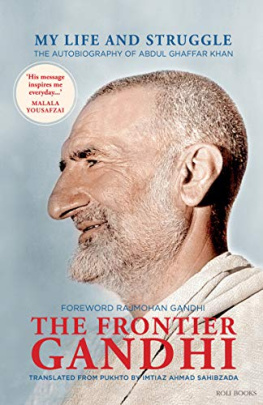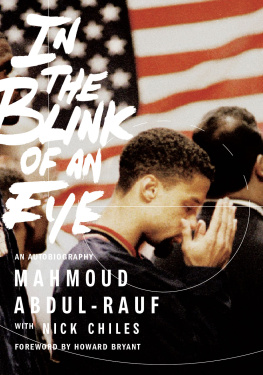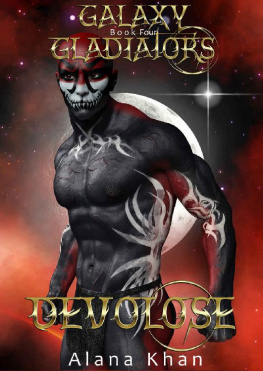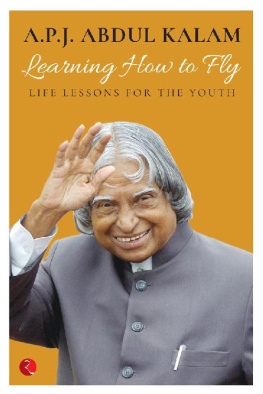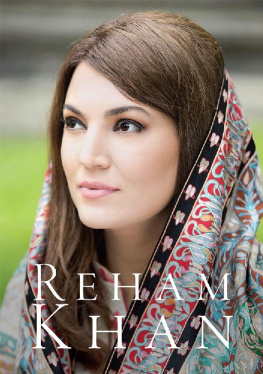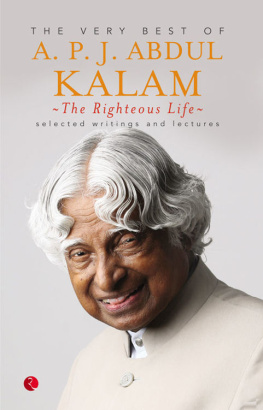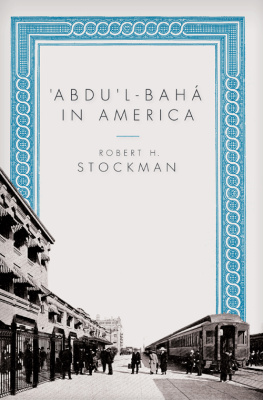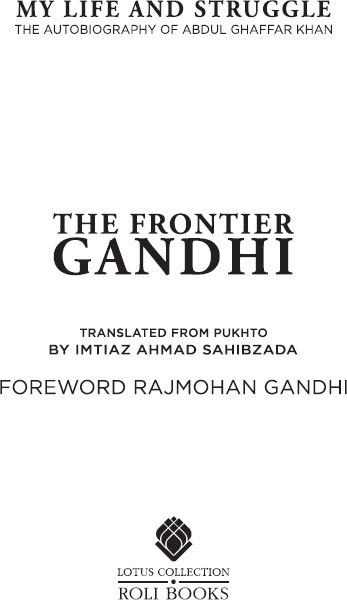Khan Abdul Ghaffar Khan (18901988), affectionately known as Bacha Khan, Badshah Khan and Fakr-e-Afghan among his people, and Frontier Gandhi in India, was born in Uthmanzai in the North-West Frontier Province of British India. His life was dedicated to the social reform of the Pukhtuns and he continues to be revered across the world by them. In India, he is known for his close association with Mahatma Gandhi and his leadership of the Khudai Khidmatgar (Servants of God) movement from 193047 the most successful and sustained Gandhian non-violent campaign anywhere in the world. The Khudai Khidmatgars or Red Shirts were key allies of the Congress who formed three governments in the NWFP despite brutal opposition from the colonial regime.
Badshah Khans success in creating a disciplined non-violent movement in a Muslim and Pukhtun context that emphasized justice, courage, respect for women and pluralism, continues to inspire today.
This is the first time that his autobiography is available in English. His candid style brings to life events and personalities of the independence movement as he records the untiring energy and sacrifices that went into winning freedom.
The original Pashto edition was first published in 1983 in Afghanistan when he was 93 years old. Subsequently, the book was also published by the Baacha Khan Trust in Peshawar, Pakistan. (An earlier account of his life, also titled My Life and Struggle was published in 1969 but this was based on interviews conducted with him and not his written autobiography.)
This translation was done by Imtiaz Ahmad Sahibzada at the request of Shandana Humayun Khan. Shandanas maternal great-grandfather was Qazi Ataullah, a close lieutenant of Bacha Khans and a key figure in the Khudai Khidmatgar movement.
OTHER LOTUS TITLES
| Ajit Bhattacharjea | Sheikh Mohammad Abdullah: Tragic Hero of Kashmir |
| Anil Dharker | Icons: Men & Women Who Shaped Todays India |
| Aitzaz Ahsan | The Indus Saga: The Making of Pakistan |
| Ajay Mansingh | Firaq Gorakhpuri: The Poet of Pain & Ecstasy |
| Alam Srinivas | Women of Vision: Nine Business Leaders in Conversation |
| Amarinder Singh | The Last Sunset: The Rise & Fall of the Lahore Durbar |
| Aruna Roy | The RTI Story: From Panchayat to Parliament |
| Bertil Falk | Feroze: The Forgotten Gandhi |
| Bidyut Chakrabarty | Mahatma Gandhi: A Historical Biography |
| Brij Mohan Bhalla | Kasturba Gandhi: A Biography |
| Hamish Mcdonald | Ambani & Sons |
| Kingshuk Nag | The Namo Story: A Political Life |
| Kunal Purandare | Ramakant Achrekar: A Biography |
| Lakshmi Subramanian | Singing Gandhis India: Music and Sonic Nationalism |
| Madan Gopal | My Life and Times: Munshi Premchand |
| M.J. Akbar | Byline |
| M.J. Akbar | Blood Brothers: A Family Saga |
| Maj. Gen. Ian Cardozo | Param Vir: Our Heroes in Battle |
| Maj. Gen. Ian Cardozo | The Sinking of INS Khukri: What Happened in 1971 |
| Manohar Malgonkar | The Men Who Killed Gandhi |
| Monisha Rajesh | Around India in 80 Trains |
| Nayantara Sahgal (ed.) | Before Freedom: Nehrus Letters to His Sister |
| Rajika Bhandari | The Raj on the Move: Story of the Dak Bungalow |
| Ralph Russell | The Famous Ghalib: The Sound of my Moving Pen |
| R.V. Smith | Delhi: Unknown Tales of a City |
| Salman Akthar | The Book of Emotions |
| Shahrayar Khan | Bhopal Vignettes |
| Sharmishta Gooptu | Bengali Cinema: An Other Nation |
| Shrabani Basu | Spy Princess: The Life of Noor Inayat Khan |
| S. Hussain Zaidi | Dongri to Dubai |
| Shrabani Basu | Spy Princess: The Life of Noor Inayat Khan |
| Sunil Raman & Rohit Aggarwal | Delhi Durbar: 1911 The Complete Story |
| Thomas Weber | Gandhi Gandhism and The Gandhians |
| Thomas Weber | Going Native: Gandhis Relationship with Western Women |
| Thomas Weber | Gandhi at First Sight |
FORTHCOMING TITLE
| Kobad Ghandy | Fractured Freedom: A Prison Memoir |
ROLI BOOKS
This digital edition published in 2021
First published in 2021 by
The Lotus Collection
An Imprint of Roli Books Pvt. Ltd
M-75, Greater Kailash- II Market
New Delhi 110 048
Phone: ++91 (011) 40682000
Email: info@rolibooks.com
Website: www.rolibooks.com
This translation, Imtiaz Ahmad Sahibzada, 2021
Foreword Rajmohan Gandhi
All rights reserved.
No part of this publication may be reproduced, transmitted, or stored in a retrieval system, in any form or by any means, whether electronic, mechanical, print reproduction, recording or otherwise, without the prior permission of Roli Books. Any unauthorized distribution of this e-book may be considered a direct infringement of copyright and those responsible may be liable in law accordingly.
eISBN: 978-81-949691-8-1
All rights reserved.
This e-book is sold subject to the condition that it shall not, by way of trade or otherwise, be lent, resold, hired out, or otherwise circulated, without the publishers prior consent, in any form or cover other than that in which it is published.
Dedication
The normal practice is that when one authors a book, it is
dedicated to someone. The verses of this poem of Makhfi Sahib,
have proved to be my life long companion in my thoughts,
actions and the struggle of my political life. That is why I want
to dedicate this book to them and wish to bring it before the
public with them:
Khawenda wudana klray Zamoong de yawalai Hujra;
Yaw zai pe kshay de zanaklray, De Pukhto dalla khwara;
Yaw zlre, yaw saa yawshanay klray,
Day beyal aw beyal Pukhtun sara.
Oh God for us Pukhtuns create,
Of brotherhood a structure,
Where we Pukhtuns may congregate
Our numerous dispersed groups;
One heart, one breath create for them,
These individual beings.
Kashmir na ter Herat horay, Baluchistan na ter dooray;
Da tol Pukhtun dae har cheray,
Tse rangay prot zaray zaray;
De yaw wajud pa shanay klray,
Ya khudaya da zara zara.
From Kashmir to Herat all spread out, Baluchistan, beyond,
Theyre all Pukhtuns, no matter where,
Disorganised, dismayed;
And of them make a whole thats strong,
Oh God of strength, compassion.
Dedicated to my niece,
Shandana Humayun Khan,
at whose special request this
translation was undertaken.
Imtiaz Ahmad Sahibzada
Contents
Foreword
In earlier generations, Indians called him Khan Sahib or Badshah Khan. Many spoke or wrote of him as the Frontier Gandhi. Hindi-speakers called him Seemaant Gandhi. However, Bacha Khan is how Pakistanis referred to him and still do.
If many could not remember Khan Abdul Ghaffar Khans full name, no one who saw him, whether directly or in a photograph, could forget his towering appearance. In my biography of him, first published in 2004, I recalled Badshah Khans immensely tall figure, absolutely straight back, great nose, kindly eyes, and permanent air of nonviolent defiance.

